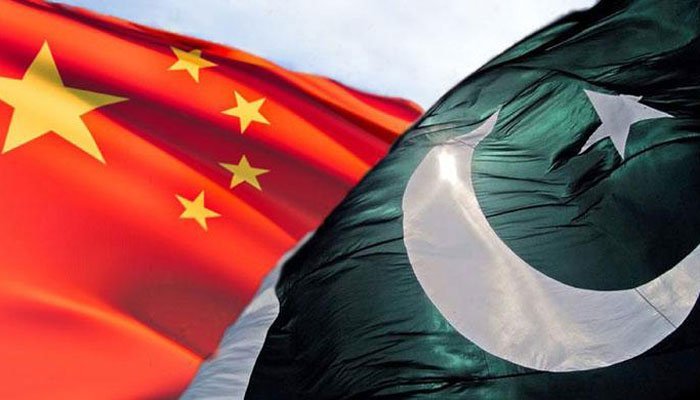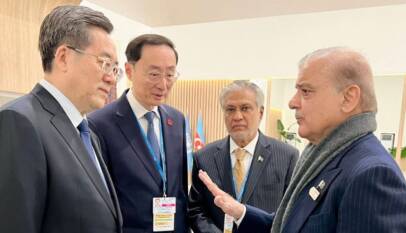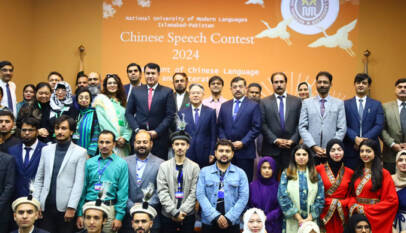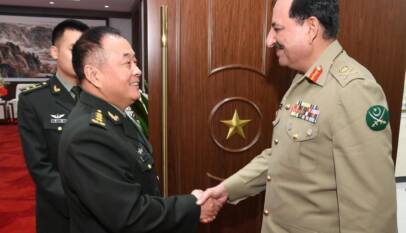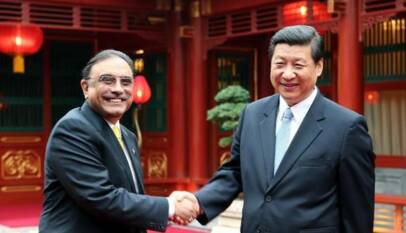Pakistan’s geopolitical relevance increased under CPEC
Dr. Zia ul Haq, an author, writes that Pakistan’s unique geographical location allows it to play an extremely essential role in the entire region of South Asia. He highlights that Pakistan’s geography, topographical features, and access to the Arabian Sea make it uniquely attractive to the international players. He writes that this potential has been harnessed by China under its BRI project of which CPEC is an integral part. Dr Haq also points the direction towards the opposition against CPEC as the US continues to threaten China with sanctions. Moreover, he writes that Pakistan also offers numerous investment opportunities under SEZs. He also highlights that as opportunities are created, the focus of these should remain towards the local people. In his article, he also proposes that the politico-military leadership of Pakistan should work to maintain its strategic relevance.
Pakistan is blessed with a geographical location that makes it an extremely important player in the entire region in general, and South Asia, in particular. Pakistan’s geography, topographical features, and access to warm waters of the Arabian Sea make it uniquely attractive to the international players of the past, present and future. Unfortunately, the successive governments in Pakistan failed to correctly visualise the importance of its geographical location. Therefore, it could not effectively sell the idea of transnational connectivity, and a cost-effective economic corridor for Russia, Afghanistan, and the Central Asian States.
When China started its journey of development in the late 1970s under the leadership of Deng Xiaoping, it initially concentrated on the development of “the Pearl River Delta (close to Hong Kong), the Yangtze River Delta surrounding Shanghai, and the Bohai Bay region near Beijing.” But, to ensure uniform development across its wide territory, China soon started to invest in its least-developed western regions. For this, it needed access to nearby ports, because the only available sea route through Malacca Straits would have taken much longer, and was obviously not cost-effective at all. China had managed to develop its western regions through the same route. But for the sustenance and initiation of its One Belt One Road (OBOR), it looked towards Pakistan’s strategically-located Gwadar Port on the Arabian Sea.
Pakistan responded positively to China’s OBOR initiative and signed numerous projects under the China-Pakistan Economic Corridor (CPEC), which has since then become a flagship project of the OBOR. While the selection of projects and contractual obligations under the CPEC has been hotly debated in Pakistan, one thing is for sure: Pakistan has started to make good use of its otherwise dormant strategic relevance due to its strategic location.
The regional countries have now been invited and shown interest in joining the CPEC, while the extra-regional players have shown reservations about the increased influence of China on Pakistan’s fragile economy. The US has been critical of the CPEC, primarily due to China’s presence on the strategic Gwadar Port, and threatened to sanction some Chinese entities involved in certain projects in Pakistan.
Pakistan has now started to realise that its strategic location can be best used, away from geostrategic significance to geo-economic importance, and therefore, offers regional connectivity to the countries within the region and beyond. The various infrastructure projects under CPEC, which would provide better means of communication between major cities of Pakistan, are near completion. Pakistan has started to offer the regional countries an opportunity to invest in numerous purpose-built Special Economic Zones (SEZs) established across the country.
This article aims to highlight the strategic relevance of Pakistan from the viewpoint of geo-economics and Pakistan’s initiatives of establishing SEZs to attract foreign investment to enhance its importance in the region as a major player. Some of the important SEZs include Rashakai Economic Zone (REZ), located near Nowshera in the Province of Khyber Pakhtunkhwa (KP), which offers investments in “Garment and Textile Products, Home Building Materials, General Merchandise, Electronics and Electrical Appliances, and Automobile and Mechanical Equipment.”
Another important and largest SEZ is Allama Iqbal Industrial City (AIIC), Faisalabad-Punjab, which is Pakistan’s textile hub and offers investment opportunities for multiple businesses, including automobiles, cellular technologies, pharmaceuticals, and textiles etc.
While REZ and AIIC have established a few production units, other SEZs to be established in Islamabad, Dhabeji-Sindh, Bostan-Balochistan, Port Qasim-Sindh, Mirpur-AJK, Mohmand-erstwhile FATA now KP, and Moqpondass- in Gilgit-Baltistan (GB), are in various stages of approval and development.
Though the initiative to adopt a definite direction towards geo-economics is appreciable, the leadership may be mindful that the opportunity is not lost in the domestic politicisation of the concept. The national interests of Pakistan must remain supreme while deciding the projects, and negotiating the conditions of investments with foreign states and entities. Moreover, the bureaucratic delays often dissuade the investors. Therefore, efforts may be made that the entire process is transparent and relatively free of unnecessary hurdles.
The leadership may be cognizant of the fact that Pakistan’s strategic location would continue to attract global players for the sake of geostrategic reasons, even if it decides not to side with any particular power in geopolitical contestation. Therefore, it is incumbent upon the politico-military leadership of Pakistan that it is not perceived as part or proxy of a major regional player, so that it can truly maintain its strategic relevance as a transnational corridor for all the regional and extra-regional states.
Chinese Ambassador highlights significance of Third Plenary Session for China-Pakistan cooperation
The Third Plenary Session of the 20th Central Committee of the Communist Party of China ha…



